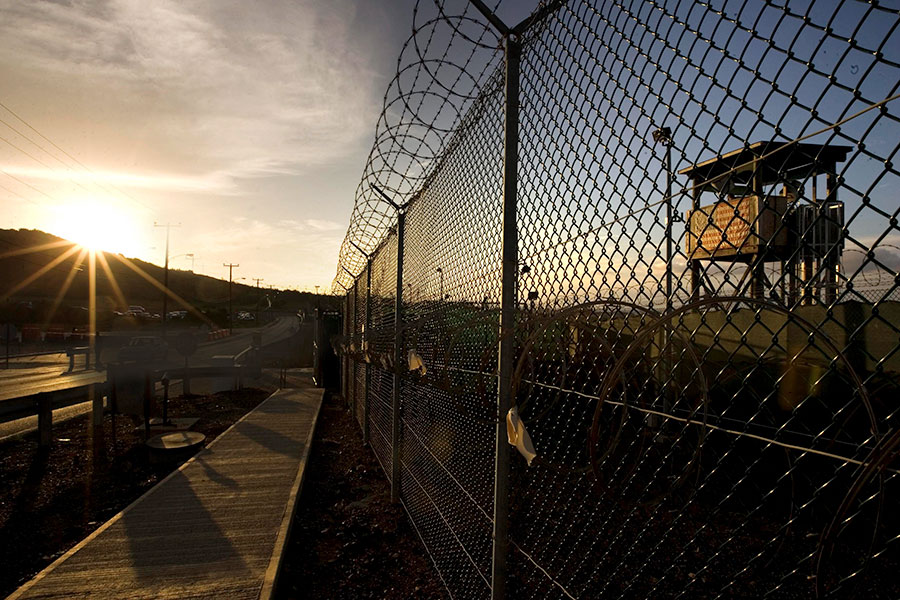 The 15 DePaul University College of Law students enrolled in the Death Penalty Practicum have taken on the case of Abd al-Rahim al-Nashiri, whom military prosecutors are seeking to execute for his role as the alleged mastermind of Al-Qaeda’s bombing of the USS Cole in Yemen’s Aden harbor on October 12, 2000.
The 15 DePaul University College of Law students enrolled in the Death Penalty Practicum have taken on the case of Abd al-Rahim al-Nashiri, whom military prosecutors are seeking to execute for his role as the alleged mastermind of Al-Qaeda’s bombing of the USS Cole in Yemen’s Aden harbor on October 12, 2000.
Seventeen American sailors were killed and 39 were injured after two suicide bombers in a small boat pulled alongside the Navy’s guided missile destroyer and detonated 400 to 700 pounds of explosives. Other charges against al-Nashiri result from an earlier unsuccessful attempt to bomb the USS The Sullivans in January 2000 and the suicide bombing of the French oil tanker Limburg, killing one civilian sailor, in October 2002.
Al-Nashiri became a detainee at the U.S. Military prison in Guantanamo Bay, Cuba, in 2006 after four years in CIA black sites in Afghanistan, Thailand, Poland, Morocco and Romania. According to a 2004 report by the CIA Inspector General, U.S. interrogators waterboarded al-Nashiri; racked a semi-automatic handgun next to his head in a mock execution; threatened him with a power drill while he was naked and hooded; and suggested that his mother or another family member would be brought to the secret site and raped.
Al-Nashiri is the first Guantanamo prisoner being prosecuted on death penalty charges. Current issues before the military commission hearing the case are whether he is mentally competent to participate in his defense, given his years of harsh treatment and torture; whether the CIA has been eavesdropping on privileged conversations; and whether the legal proceeding is in essence a show trial, given that prosecutors have stated that there is no possibility of release in the event of an acquittal.
In addition, al-Nashiri’s defense team has an appeal pending in the 9th Circuit Court of Appeals challenging the authority of the military commission adjudicating al-Nashiri’s case. A group of retired U.S. admirals and brigadier generals has filed an amicus brief in that case, arguing that the commissions are a departure from the constitutional use of military tribunals and that they endanger American troops and government representatives abroad who could face similar extra-judicial proceedings. Physicians for human rights also filed an amicus brief, arguing that justice cannot be accomplished in a military prison environment where a torture victim is still controlled by the same authorities who tortured him.
Professor Andrea Lyon, Death Penalty Practicum director and associate dean of Clinical Programs, and her students will work alongside military attorneys Lieutenant Commander Stephen Reyes and Major Allison Danels, as well as civilian attorney Richard Kammen, a renowned death penalty lawyer based in Indianapolis.